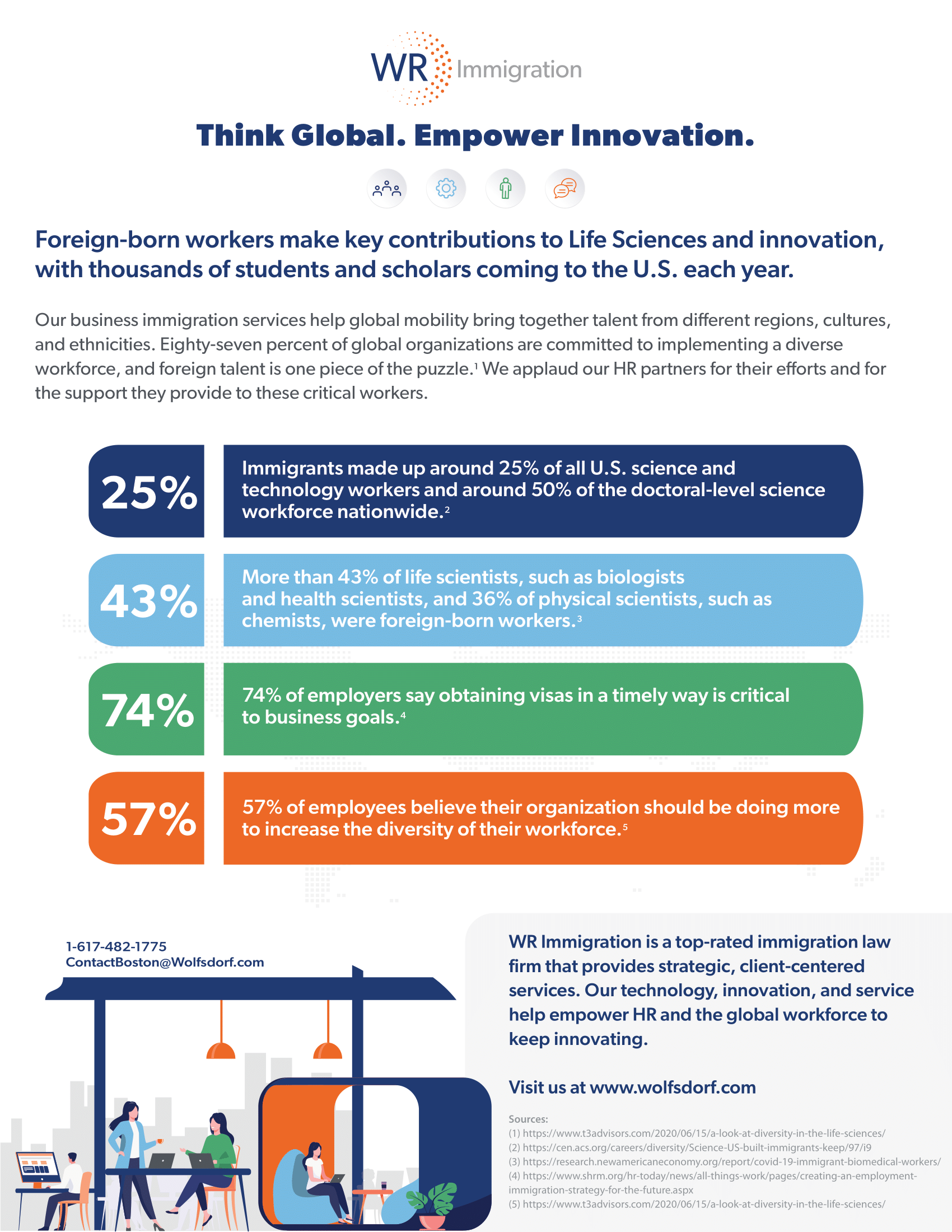The Life Sciences industry runs on innovation – and in order to develop innovative solutions, companies need to have different perspectives, different backgrounds, and different cultures. Opening doors to more diverse teams is essential to expanding prospects to find the best talent with the skillset to solve complex problems in unique ways and continue to drive innovation.
There is plenty of opportunity to reach this goal — in 2018, nearly 2.5 million jobs in the science, technology, engineering and mathematics (STEM) fields went unfilled. Foreign talent is a key part of the solution. Without it, companies would not have the arsenal to make the necessary strides. Indeed, immigrants make up approximately 25% of all U.S. science and technology workers and 50% of the doctoral-level life science workforce nationwide.
With foreign-born talent as a driving force in the life sciences industry, it’s crucial for HR professionals to be equipped with the tools and guidance they need to attract and retain these workers. It takes a knowledgeable and efficient partnership between HR and immigration attorneys working together to recruit, retain, and ensure that the best talent can operate unconstrained by visa restrictions. They must be prepared to welcome people with the experiences and backgrounds that help foster continued growth in their company and their sector.

Along with being strategic and well-versed in current visa programs, HR should play a role in alleviating some of the anxiety and uncertainty foreign-born workers face. In a study conducted by SHRM Council of Immigration, 74% of employers say obtaining visas in a timely manner is critical to business goals. There’s a lot to consider when it comes to visa approvals, timeline issues, and relocation obstacles. When HR can do so in an organized, transparent, and flexible manner, they provide a smooth process for both the foreign-born talent and the business overall.
At WR Immigration, we partner with both human resources and their foreign national employees to guide them through the immigration process. We provide transparency, set expectations, and ensure that businesses always have the most up to date compliance information.
If you have any questions, please contact us.


